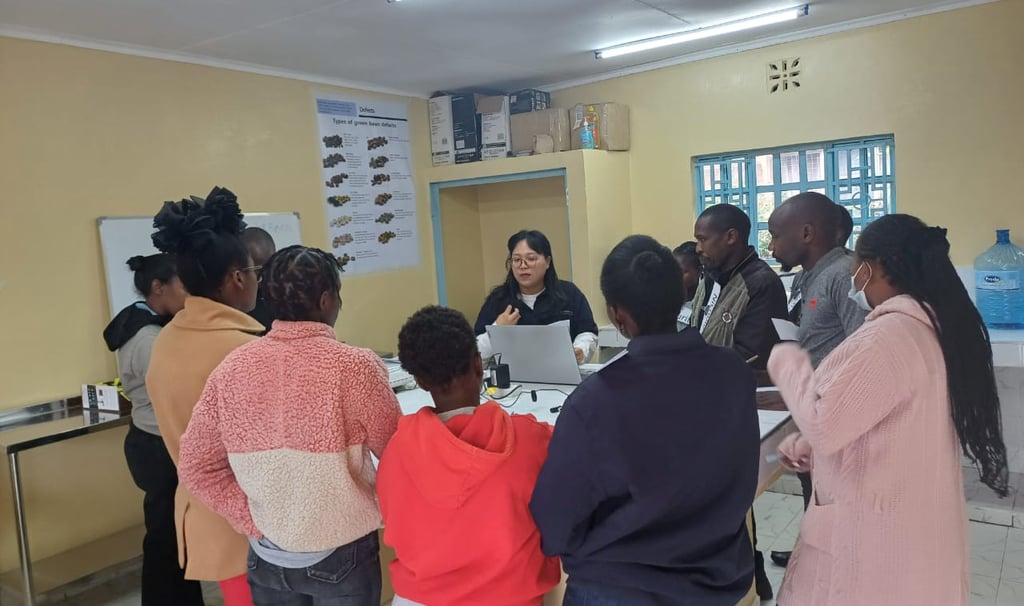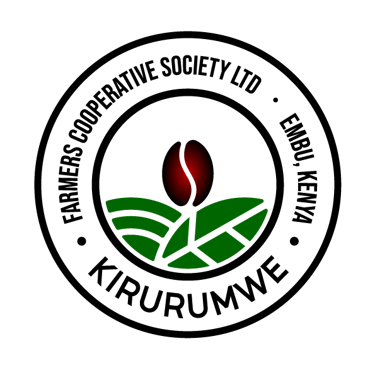Enhancing Sensory Skills, using the Aroma Kit: Advanced Q Grading Training at Kirurumwe Coffee Lab
NETWORKING WITH OTHER SOCIETIESBLOG POST


Introduction to Advanced Q Grading Training
On July 31, 2024, the Kirurumwe Coffee Farmers Cooperative Society (FCS) hosted a remarkable advanced Q grading training at their innovative coffee laboratory. This training sought to enhance the participants’ sensory evaluation skills, which are essential for recognizing and describing various coffee flavors accurately. Led by certified Q Grader Yeonsil Lee and project coordinator Kenya Good Neighbors Migyeong Kim, the event was a convergence of knowledge and passion for coffee quality.
Training Objectives and Activities
The training focused primarily on utilizing the aroma kit to express complex flavor profiles. With 16 enthusiastic trainee farmers from various Coffee Farmers Cooperative Societies, including Kirurumwe Farmers Cooperative Society in Embu, each participant was eager to refine their skills in detecting and articulating coffee aromas Throughout the sessions, attendees engaged in practical exercises designed to sharpen their sensory skills. By employing the aroma kit, participants learned how specific smells correlate with distinct flavors in coffee, thus enhancing their ability to conduct effective Q grading assessments.
Understanding the Aroma Kit
The aroma kit, originally designed for wine evaluation, has been adapted for coffee cupping and evaluation purposes. During the training, participants were introduced to the 36 different aromas housed within the kit. Each scent plays a crucial role in determining the unique flavors present in coffee beans. These aromas are categorized into four primary groups:
Enzymatic – Aromas resulting from enzymatic reactions during roasting.
Sugar Browning – Aromas formed during the caramelization phase of roasting.
Dry Distillation – Burnt aromas from heat-induced decomposition.
Aroma Taints – Negative aromas associated with defects in coffee production or storage.
Hands-on Aroma Detection
The practical aspect of the training involved participants using the aroma kit to familiarize themselves with each scent. They practiced detecting and describing various aromas, such as potato under the Enzymatic category, noting whether they found it pleasant or unpleasant. The goal was not just to identify the aromas but also to articulate their nuances in a detailed and meaningful way.
Impact on Participants and Future Prospects
The feedback from the trainees highlighted the importance of such targeted training in advancing their abilities as coffee graders. The hands-on approach adopted during the training ensured that each participant left with practical skills they could immediately apply in their evaluations. As the coffee industry continually evolves, ongoing education is paramount. The skills honed during this event not only contribute to personal growth for the trainees but also elevate the quality standards within the Kirurumwe Coffee Farmers Cooperative Society as well as other Coffee Cooperative Societies with which the participants are affiliated.


